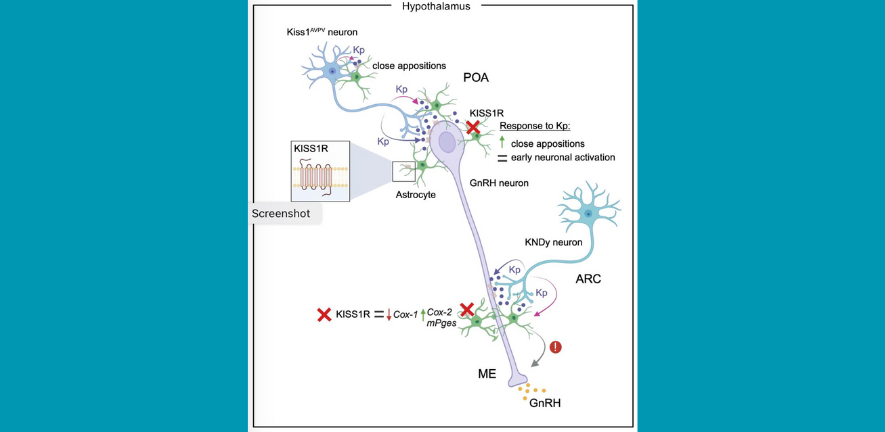
Submitted by Emily Rigby on Fri, 09/08/2024 - 11:18
A new paper shows that astrocyte cells in the brain influence and modify the reproductive axis. Previously, it was thought that only neurons did this. The paper, Kisspeptin signaling in astrocytes modulates the reproductive axis, is published in Journal of Clinical Investigation, and co-authored by members of the Colledge Lab and colleagues across Spain, USA and France.
Reproduction is protected by multiple, often cooperative, regulatory networks. Kisspeptin, a naturally occurring hormone that stimulates the release of other reproductive hormones within the body, sends signals via the KISS1R gene. The team's research highlights the role of direct kisspeptin actions within astrocytes, that contributes to central reproductive changes.
To read the full paper visit the Journal of Clinical Investigation website www.jci.org/articles/view/172908. An accompanying commentary can also be found on the same site.

